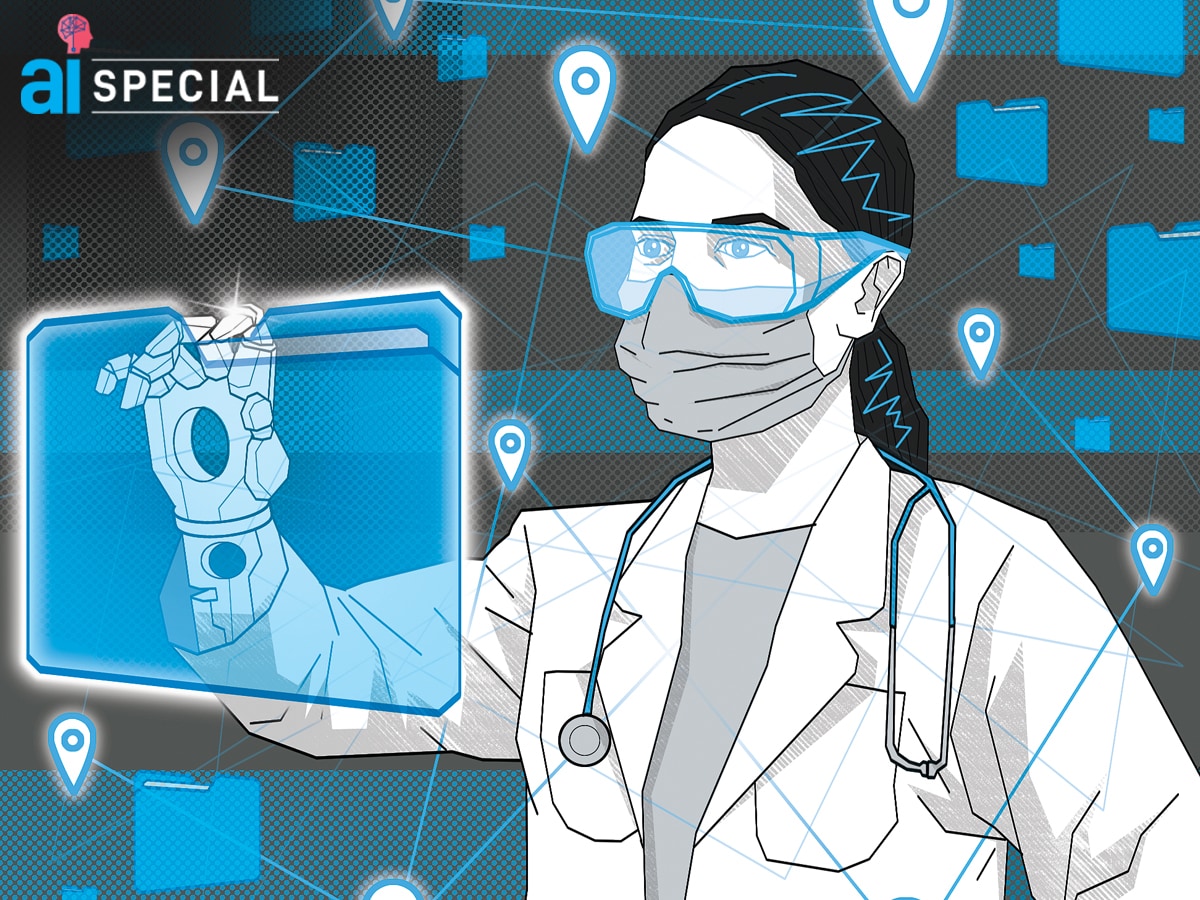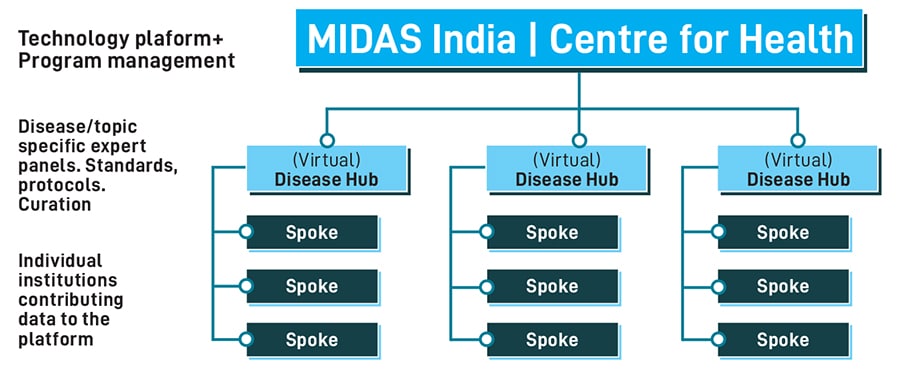 India has prioritised the use of AI in health care in its IndiaAI Mission, and the creation of datasets representative of the Indian context is critical to enable this.
India has prioritised the use of AI in health care in its IndiaAI Mission, and the creation of datasets representative of the Indian context is critical to enable this.
Illustration: Chaitanya Dinesh Surpur
India’s health care sector is at a pivotal juncture. Digitalisation and technology adoption across the public and private sectors over the past few years have the potential to transform health care towards enhancing quality, reducing cost and improving accessibility.
As the country progresses toward Universal Health Coverage, artificial intelligence (AI) and machine learning (ML) have demonstrated the potential to revolutionise screening, diagnostics and treatment. India has prioritised the use of AI in health care in its IndiaAI Mission, and the creation of datasets representative of the Indian context is critical to enable this.
Needed: Indian Data
Western bias in AI is well documented, primarily due to the under-representation of non-Western data in training. Adopting AI technologies developed with non-Indian datasets without understanding applicability and rigorous validation is unsafe. India’s diversity and vast population pose a unique challenge in developing and implementing AI-based interventions.
Habits, lifestyle and socioeconomic factors influence disease dynamics and epidemiology different from western countries. It is also an opportunity as solutions developed in India could be extended to other countries with similar socioeconomic contexts. While there are multiple Indian medical data repositories, they’re scattered across institutions and do not necessarily talk to each other. Data standardisation and a mechanism for identifying and ensuring consistency in data collection protocols is needed.
The Medical Imaging and Information Datasets (MIDAS) platform aims to address this. MIDAS is a collaborative effort by the Indian Institute of Science (IISc), Indian Council of Medical Research, and AI and Robotics Technology Park (ARTPARK) to create a centralised, quality-graded repository of medical datasets representative of India’s vast and diverse population.
Hub-and-Spoke Model
The dataset requirements vary across diseases, use cases and deployment contexts. Developing AI applications for use at a field setting would need to adapt to data captured in noisy environments. Dataset requirements for fundamental research to understand patterns and associations is different from the requirements for AI-driven applications. Therefore, there is a need to identify a framework for defining the requirements, ensuring purpose-fit, diversity and representation.
MIDAS uses a hub-and-spoke framework to address this. A hub is a working group of multidisciplinary experts created to identify priority use cases for a disease (for example, oral cancer, tuberculosis, diabetic retinopathy, etc), define data requirements, identify standards and protocols. Spokes are individual medical institutions that collect the data required.
The MIDAS platform provides the technology backbone for consistent data collection, curation, annotation and sharing. An API (application programme interface) layer standardises data from various modalities across different settings. Patient consent is obtained for every case and an ethics committee reviews the entire protocol to ensure adherence to ethical principles and protection of patient interests.
Also read: Medical database billionaire Terry Ragon wants to build a Manhattan Project for HIV
Health AI in India
Nasscom projects India’s AI market to touch $17 billion by 2027. Access to high-quality medical datasets has been a significant barrier for Indian startups and research groups looking to develop AI-based health care solutions. While large corporations may secure data-sharing agreements with major health care institutions, smaller entities are left out.
Making data open and accessible provides a level-playing field and has seen significant advantages in various AI domains such as natural language processing and computer vision. The UK biobank has incentivised researchers worldwide to tackle some of the most important global diseases and has recently attracted £50 million in funding from the public and private sectors. Clean, curated and standardised medical datasets in the Indian context can significantly reduce the entry barrier for startups and enable novel use cases and innovations.
AI also has significant potential to impact government programmes. Screening programmes in priority areas such as cancer, diabetes and tuberculosis have identified late diagnosis as a significant challenge. AI-powered tools have demonstrated potential in assisting frontline workers and supporting clinicians in diagnosis and treatment. Use cases with a significant public health impact will particularly be prioritised.
In addition to data access, MIDAS is envisioned to play a role in evaluating and validating AI algorithms for their applicability in the Indian context. A subset of the data will be chosen for evaluating various algorithms and benchmarking their performance. This could also inform current technology gaps and research areas to make AI work for India.

Future Roadmap
It is important to note that MIDAS is not a one-time activity but must continuously evolve with use cases, technology capabilities and context changes. The mechanism must also align and integrate with state and national programmes to ensure relevance. Continuous monitoring and performance benchmarking of AI algorithms also create confidence and trust in the system.
Ensuring alignment with international standards can also accelerate the development, pilot deployment and scaling of AI solutions globally and foster an international innovation ecosystem for some of the most pressing global health challenges.
India is on the cusp of a digital health revolution—one that promises to deliver personalised, AI-driven health care solutions tailored to the country’s rich diversity. In this journey, MIDAS could play an important role in enabling social and economic benefits of AI globally in a uniquely Indian manner—as a digital public good.
The authors are founding members of MIDAS-India from IISc and ARTPARK
(This story appears in the 04 October, 2024 issue
of Forbes India. To visit our Archives, click here.)
